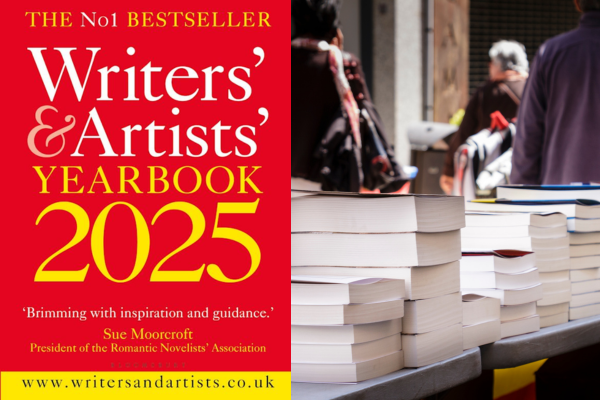A note from Lauren MacGowan, on updates to this year’s editions of the Writers’ & Artists’ Yearbook 2025 & Children’s Writers’ & Artists’ Yearbook.

Although securing funding is becoming more difficult for smaller festivals, the industry as a whole is resilient. This year alone, I have added twenty-two new festival listings to the Writers’ & Artists’ Yearbook, indicative of a growing demand for literary events. The festivals that are continuing tend to have a specific focus, whether that is inclusion (Africa Writes, ESEA Literary Festival, Merky Books Lit Festival) or a type of writing (Black Speculative Writing Festival, The London Radical Book Fair, Stepping Into Stories Kid’s Lit Fest). Regional and local festivals also remain strong (e.g. Tottenham Literature Festival, Margate Bookie Festival, Barnsley Book Festival), with many citing a desire to connect local communities with writers in their area, and to make literature and publishing feel more accessible and less shrouded in mystery. Following on from the pandemic, many festivals have chosen to continue with a hybrid of in-person and online events. This is partly to increase accessibility and affordability, but in some cases is also part of a drive to be more environmentally friendly. More in-person events are also being shared online as video or audio recordings.
Many societies too are now running events online in an attempt to reach wider audiences. They sometimes offer free/sponsored tickets, discounted tickets or pay-what-you-can schemes. The East and Southeast Asian Publishing Network, the Black Writers’ Guild, WritersMosaic, the Inclusive Books for Children Society and the Trans Publishing Network are all new additions this year. The societies are often the source of new prizes and festivals, and their initiatives tend to reflect trends in this area.
Like festivals, literary prizes continue to flourish each year. Although there are still lots of prizes for fiction/short stories/poetry, I’ve noticed the trend that most new prizes added this year are more niche, e.g. The Entente Litteraire Prize (for YA fiction translated between English and French), the Starog Prize for Irish Children’s Literature, The Climate Fiction Prize. The latter leads on to another continuing trend – prizes with a social cause, whether that is climate change or inclusion. Prizes aimed at writers from one or more backgrounds under-represented in publishing continue to run year-after-year, and each year there are a few more new additions. These are also becoming more specific in some cases, e.g. the Black Women’s Non-Fiction Manuscript Prize and the Mary Prince Memorial Award, both of which are open to entries from Black women only. There also seems to be more attention being paid to illustrators and designers, as well as graphic novels (perhaps due to the Oseman-effect). New awards include The Shirley Hughes Sketchbook Award, the Thames & Hudson Award for Book Design, the Folio Book Illustration Award, the First Graphic Novel Award and The Scholastic Graphic Novel Award.
It is clear that festivals facilitate a strong desire for creativity to be appreciated and shared, fostering a community of book enthusiasts. Giving accolades to writers that respect and honour creative individuals.
Lauren MacGowan is an experienced editor, proofreader and project manager. She is a listings editor for the Writers’ & Artists’ Yearbook, works with publishers such as Bloomsbury and Pearson and is a graduate of the prestigious MA in Publishing Media at Oxford Brookes University.
Comments